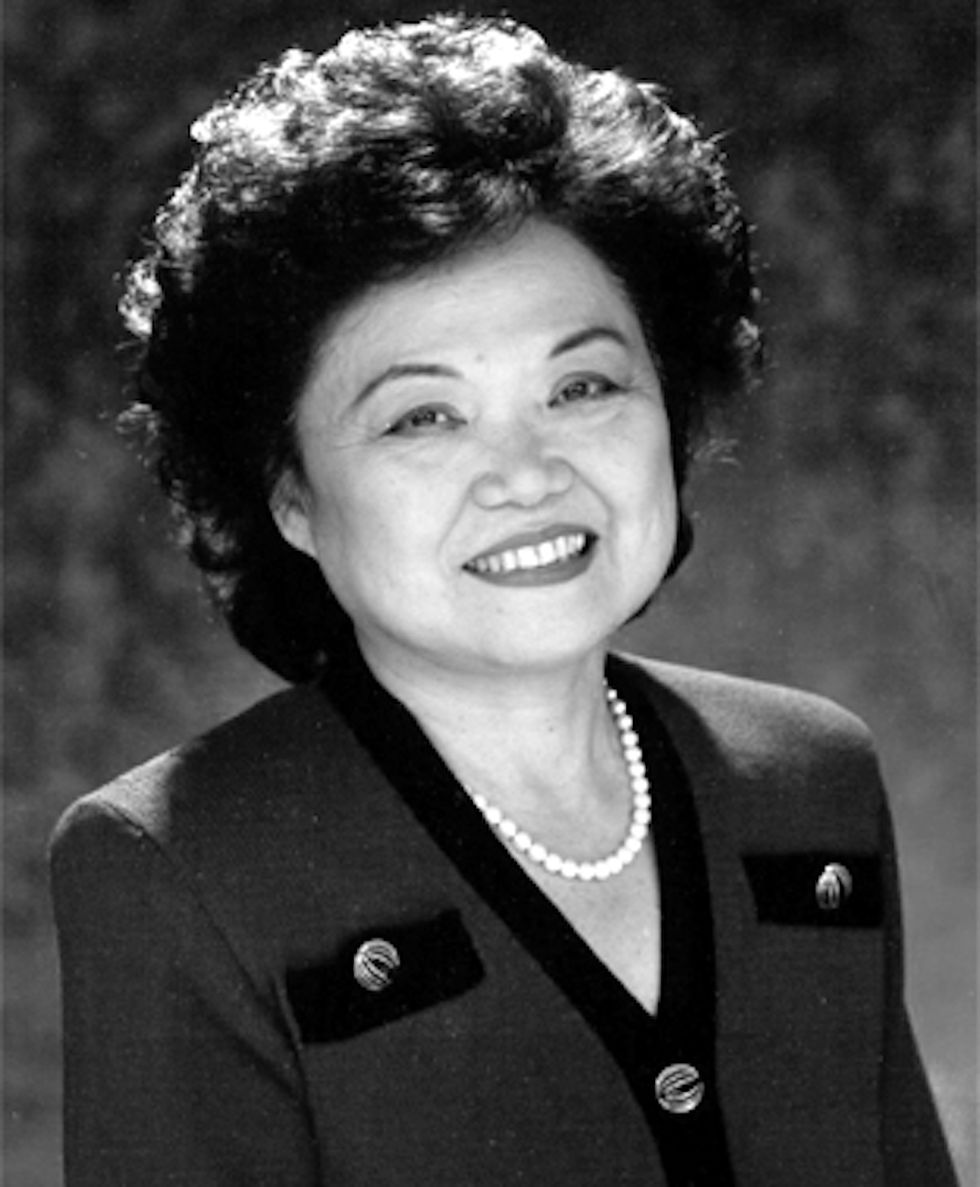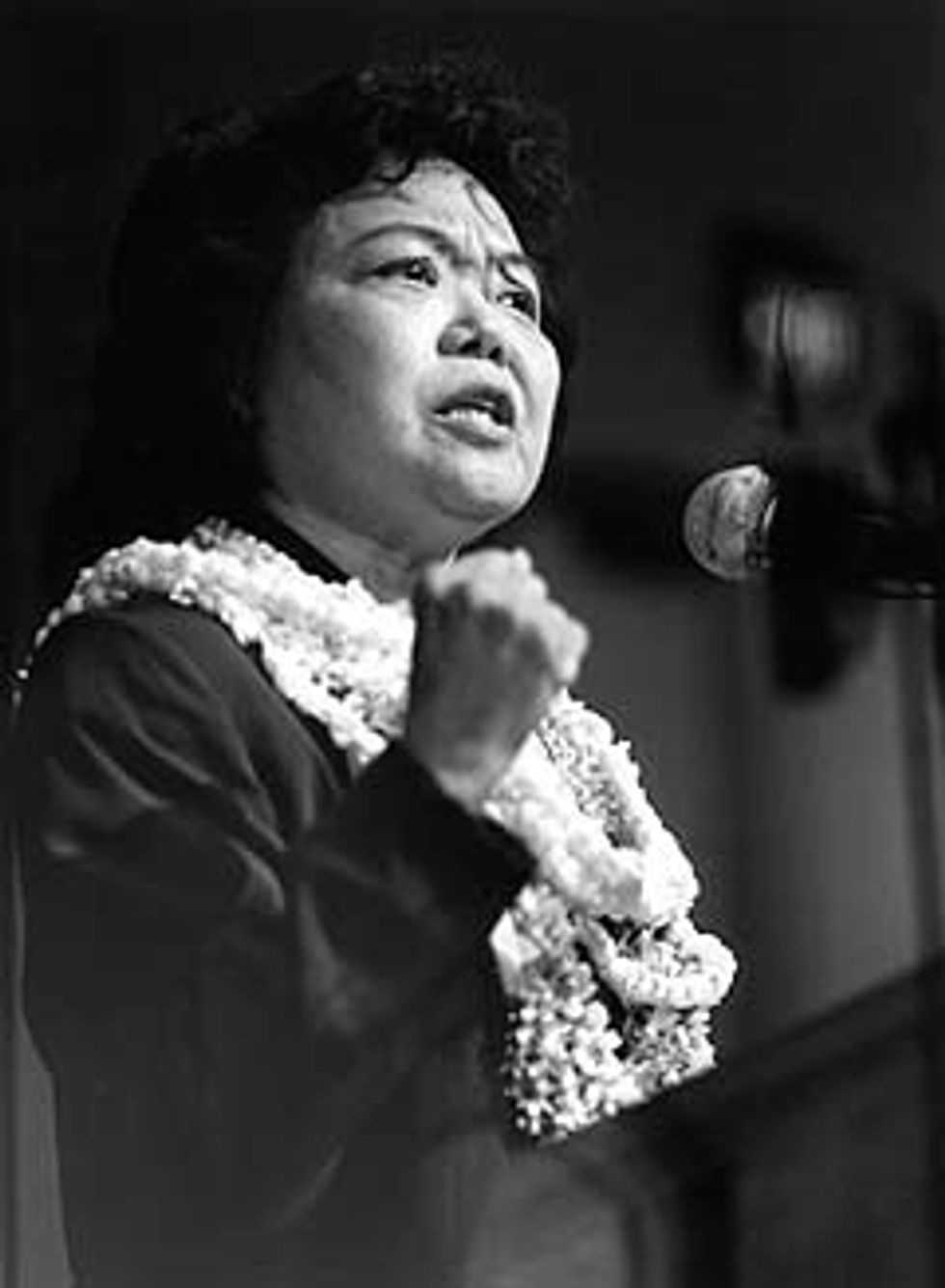Patsy Mink was a third generation Asian American born in Hawaii. She was her high school class valedictorian and attended the University of Hawaii in 1944. Mink later transferred to the University of Nebraska and was forced to live in racially segregated dorm buildings. In reaction to this overt racism, she founded a massive coalition that would successfully lobby to dismantle the University’s segregation policies.
In 1948, Mink applied to twenty different medical schools, but none were accepting female applicants at the time. Mink then decided she wanted to ameliorate gender-based discrimination in higher education by practicing law.
In 1965, Mink became the first woman of an ethnic minority to be elected to the United States Congress.
In 1972, Mink ran for president as an anti-war candidate in the Oregon primaries. Some of her most influential accomplishments include the Early Childhood Education Act and the Women's Educational Equity Act.
Patsy Mink is especially significant to the modern feminist movement due to her intensive involvement with Title IX and Women’s Educational Equity Act of 1974. Title IX, in its most basic sense, is designed to provide policy goals for the advancement of educational equity for women.
This bill served as a pivotal precedent to the Women’s Educational Equity Act which supported and bolstered the goals of Title IX by funding programs that advocated for gender equality in education.
Mink’s introduction of the Women’s Educational Equity Act is a significant landmark in US history representative of the altering feminist narrative and the integration of intersectional ideas to the movement. One of the act’s main goals was “to promote equity in education for women and girls who suffer from multiple forms of discrimination based on sex, race, ethnic origin, limited English proficiency, disability, or age.”
This clause within WEEA is one of the first congressional acts to recognize intersectionality, indicative of a burgeoning intersectional feminist perspective that sought to recognize the women who were discriminated against based on a myriad of factors rather than just gender.
Mink is a trailblazer for the articulation of fourth wave feminism and the inclusion of intersectional women in the feminist movement. Her passion for equal rights and dedication to activism has provided women everywhere with a more egalitarian education experience.
She is not only a successful advocate for the oppressed, but she is also a representation of the shift in dialogue within the feminist movement, broadening conversations of gender to include diversity.


















